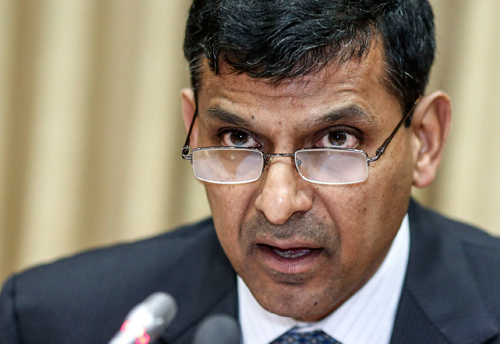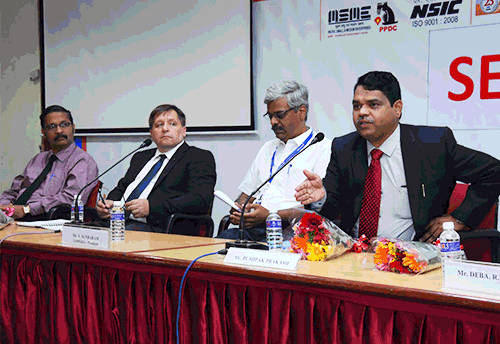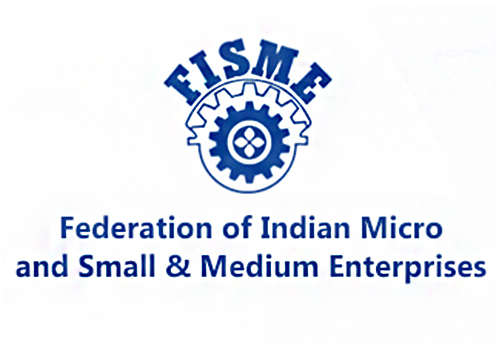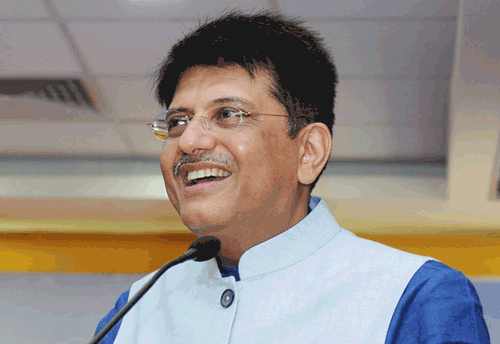All would be better off if the MSME could sell its claim on the large buyer in the market: Raghuram Rajan
Updated: Jul 18, 2016 08:22:20am

All would be better off if the MSME could sell its claim on the large buyer in the market: Raghuram Rajan
Hyderabad, July 18 (KNN) MSMEs get squeezed all the time by their large buyers, who pay after long delays. This was states by RBI Governor Dr Raghuram Rajan while talking about the approaches to push financial inclusion.
Dr Rajan was addressing at the National Seminar on Equity, Access, and Inclusion - Transforming Rural India through Financial Inclusion organised by NIRD and PR, Hyderabad today.
He said, “All would be better off if the MSME could sell its claim on the large buyer in the market.”
The MSME would get its money quickly, while the market would get a claim on the better rated large buyer instead of holding a claim on the MSME.
All this will happen as the three Trade-Receivables Discounting Systems (TReDS) which the RBI has licensed, start later this financial year, Dr RRajan said.
The key is to reduce transaction costs by automating almost every aspect of the transaction so that even the smallest MSMEs can benefit, RBI chief explained.
Talking about another approach of pushing formal institutions into reaching out to the excluded, even if it is unprofitable, he said, “This is why, for example, we mandate that banks allocate a certain fraction of their loans to the “priority sector” and that they open 25 percent of their branches in unbanked areas.
There are also interest subventions that are made available for loans to particular sectors. Furthermore, banks have been urged to open bank accounts for all under the Pradhan Mantri Jan Dhan Yojana (PMJDY), while today they are being exhorted to make loans to small businesses under the Mudra Scheme,” he said.
Because there are positive social benefits to financial inclusion that are not captured by the service provider (what economists call “externalities”), such mandates are reasonable from a societal perspective, he added.
The RBI chief said that the Financial inclusion is about (a) the broadening of financial services to those people and enterprises who do not have access to financial services sector ; (b) the deepening of financial services for those who have minimal financial services; and (c) greater financial literacy and consumer protection so that those who are offered financial products can make appropriate choices.
Dr Rajan said, “World over, the poor, the small, and the remote are excluded. It is not just because the financial system is underdeveloped, but because they are hard to service profitably. Nevertheless, this is not a reason to abandon hope, but to ask how we can overcome the impediments in the way of inclusion. The best way to characterise the impediments are through the acronym IIT: Information, Incentives, and Transaction Costs.”
In his concluding remarks, Dr Rajan said, “The country has come a long way in the process of financial inclusion, but still has a way to go. We are steadily moving from mandates, subsidies, and reliance on the public sector banks for inclusion to creating enabling frameworks that make it attractive for all financial institutions to target the excluded, even while the interests of the excluded are protected through education, competition and regulation. I am confident that in the foreseeable future, we will bring formal financial services to every Indian who wants them. Financial inclusion will be an important element in ensuring access and equity, necessary building blocks for the sustainable growth of our country.” (KNN Bureau)











